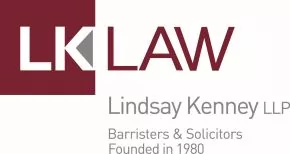Getting into the real estate market in British Columbia is financially challenging for most. Accordingly, it is now far more common for groups of two or more to pool their resources together in order to better afford such acquisitions and share the maintenance risks and costs.
Like any venture involving significant financial expenditures and risk, it is advisable to reduce to writing the various rights and responsibilities of the parties. The age-old adage of 'get it in writing' applies doubly-so for real estate matters.
Whether you are dealing with family, best friends or simply like-minded real estate investors, the first step (long before any purchase contract is signed) should be to write down your goals, intentions, rights, obligations and anything else relevant to the venture.
In my experience, one of the most common reasons these types of ventures go sideways is due to a lack of clear, written communication. Often, each side assumes that the other is aware of certain unwritten (and often unspoken), concerns, issues, plans and intent. Fortunately, this communication problem is easily mitigated, and often avoided altogether, by entering into a co-ownership agreement well in advance.
A co-ownership agreement, like a shareholder's agreement, sets out the terms and conditions, rights and responsibilities, and options and obligations of the various parties. In its most basic form, a good co-ownership agreement should address the following main issues:
- The amount of each party's initial cash contribution;
- The amount of each party's beneficial interest in the venture;
- The amount of each party's
responsibility and liability for:
- Mortgage Payments (as between each other);
- Maintenance and Upkeep Costs (e.g., property taxes, home insurance, minor repairs, etc.);
- Major Repairs and Renovations;
- How and when the property can or must be sold (i.e., exit strategies); and
- What, exactly, happens to the gross sale proceeds and net sale proceeds, and how these proceeds are paid out to the parties?
There are, of course, additional case-by-case factors and investment specific issues that ought to be addressed in a co-ownership agreement, depending on the particular scenario and parties involved. Some additional questions to ask yourself (and the other prospective parties) are as follows:
- Will any of us be living in the property? Will any of us NOT be living in the property?
- If there is living space exclusively for one party, should that party bear all the costs of maintaining and repairing that exclusive space?
- How will we determine what renovations and repairs to make, and when?
- Should we each contribute to a pool of funds monthly so that we have money readily available for unexpected repairs?
- What happens if one of us dies, gets sick, or loses his or her employment for an extended period of time?
- When it comes time to sell the whole parcel to a third party buyer, how do we determine the list price and sale price? For that matter, how do we determine which realtor to list the property with?
- What happens if one or more parties
want to sell, and one or more parties do not?
- Commonly, a right of first refusal will assist, however consider the likelihood that either party will actually be able to buy-out the other party at the relevant time.
- What happens if we just can't get
along?
- Should one party be able to force the other party out (e.g. shot-gun clause)?
- If so, how do we determine the purchase price?
Of course, unforeseeable events occur from time to time and goals, intentions and life circumstances can change in unexpected ways. Importantly, the co-ownership agreement can be amended and revised as time passes (provided everyone agrees to the new terms). Having an adaptable, flexible agreement is important, but so is having something formal and in writing so the parties can turn to the agreement if they cannot resolve their differences amongst themselves as and when issues arise.
Conceptually, the co-ownership agreement constitutes the first and last word on each issue regarding the real estate investment. Practically, the agreement is first used to ensure everyone is on the same page with respect to expectations and intent (and if you cannot actually get on the same page when there is nothing concrete yet at stake, it may be unwise to enter into a joint venture with these particular parties and you may have just avoided tens of thousands of dollars in legal fees, stress, grief and hassle). Once signed, the agreement is then filed away and ideally no issues arise that require specific clauses in the agreement to be relied upon. If, and only if, the parties run into an issue that they cannot resolve amongst themselves acting reasonably, they can then turn to the terms and conditions of the co-ownership agreement to finally resolve their dispute.
When disagreements arise involving real estate, they typically involve relatively large dollar figures. A party who may not be willing to quibble over $1,000 may well change his tune when you add a few more zeroes to the equation. A good co-ownership agreement will easily save tens of thousands of dollars in legal fees by helping to avoid disputes altogether and narrowing the focus of such disputes if they do arise.
By ensuring everyone is on the same page at the beginning, you set yourself up for success from the outset. This sentiment is applicable regardless of whether the acquisition is for a short-term renovation and re-sale or a long-term living arrangement and 20-year hold. Clear, written communication is crucial, whether you are dealing with family or close friends, and frankly, often because of such special relationships and all the other non-financial interests that often accompany same.
About Mackrell International – Canada - Lindsay Kenney LLP is a full service business law firm with offices in Vancouver and Langley, BC and a member of Mackrell International. Mackrell International – Canada is comprised of four independent law firms in Alberta, British Columbia, Ontario and Quebec. Each firm is regionally based and well-connected in our communities, an advantage shared with our clients. With close relations amongst our Canadian member firms, we are committed to working with clients who have legal needs in multiple jurisdictions within Canada.
This article is intended to be an overview and is for informational purposes only.

